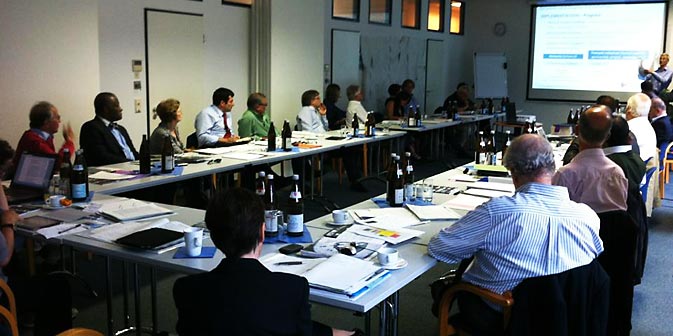
Transparency International Russia will challenge the new law governing non-governmental organisations if it is passed. Source: Press Photo.
The Moscow office of the anti-corruption coalition Transparency International has issued a statement announcing its refusal to comply with the recently passed law on foreign agents. “By agreeing to the status of foreign agent, any organization effectively admits that it is pursuing the interests of a foreign state, or a foreign or international organization, rather than working for the benefit of its own country – Russia,” the statement reads. “We do not believe that efforts to achieve our organization’s main objective – to fight corruption – damage, or even fail to benefit, our country.”
Human-rights organizations to boycotte new law on NGOs
U.S. to pull the plug on USAID operations in Russia
The leader of Russia's lower house speaks on controversial issues
According to the signatories (with the deputy chair at the Higher School of Economics and co-author of Russia’s current constitution, Mikhail Krasnov, at the top of the list), such statutory provisions contradict several articles of the law at once. First, the provisions violate the principle of equal rights, since declaring itself an agent automatically puts any nonprofit organization at a disadvantage and humiliates its purpose.
Furthermore, the requirement contradicts Article 51 of the constitution, which states that no person shall be compelled to be a witness against himself. It also restricts the right of people to participate in state affairs, which is allowed for in Article 32 of the constitution; the new law defines engagement in political activities as a criterion for declaring a nonprofit organization a foreign agent. Transparency International also stated that it would continue its operations on the basis of the lawful provisions of the supreme power of the constitution.
Transparency International will not file for foreign agent status, the organization’s deputy director, Ivan Ninenko, confirmed. Any sanctions imposed on the organization in accordance with the law on foreign agents will be appealed. “We will take the matter all the way to the Constitutional Court, if we have to,” Ninenko said.
Earlier, Memorial, For Human Rights and the Moscow office of the Human Rights Watch – all being nonprofit organizations dedicated mostly to the protection of human rights – announced their intention to boycott the law, which is scheduled to take effect on Nov. 21. In turn, the Ministry of Justice issued a warning that boycotting the law could result in the operations of the nonprofit organizations being suspended, while repeat violations would lead to legal charges.
“It will take political will to force nonprofit organizations to register as foreign agents,” said Pavel Chikov, chairman of the Agora association of human rights organizations. This could spark a bitter row: Transparency International is by no means a radical organization, and its decision to sabotage the law obviously reflects the current attitude of the international community.
According to the newly adopted law on nonprofit organizations, any Russia-based noncommercial entity financed from abroad and engaging in political activities will both be assigned the status of “foreign agent” and come under various tougher forms of control from the government – including, of course, financial controls. Noncompliance with the law is subject to criminal liability.
First published in Russian in Vedomosti.
All rights reserved by Rossiyskaya Gazeta.
Subscribe
to our newsletter!
Get the week's best stories straight to your inbox